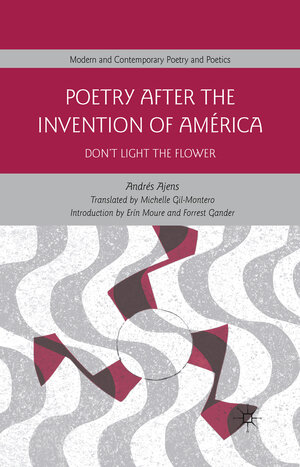
„First, the book is the sum of the autographic inversion(s) of at least five people: Andean Andrés Ajens and his singular essays/assays; Forrest Gander and Erin Moure, tutelary figures demanding cognizance of the nonliterary or ancestral coeval others in American poetry; Alberto Moreiras, whose foreword truly steps forward; and Michelle Gil-Montero, whose careful translation or “dis[em]placement„ is a stunning tour de force. Second, the whole book is written in a different chromatic scale of language and history from that usual in the West. This is a veritable tinku (or encounter) that seeks to deblock contaminated thinking about
poeisis in the Americas; it explores what Ajens calls “misture„ to denote both the “métis-isation„ and a greater “metasisization„ in the usual commentary on indigenous thinking expressed only in terms of European culture in the familiar myth of “Conqu-west.„ Instead of exclusion, he prefers an invitation to partake of a treasure trove that includes Aristotle, Celan, Poe, Derrida, and others in joyful confluence with Aymara, Quechua, Mazateca, and Mapudungun. These important, far-reaching essays, sometimes angry but always playful, are a necessary reminder that culture and poetry existed in the Americas long before 1492. Summing Up: Highly recommended. Upper-division undergraduates and above.“ - CHOICE



